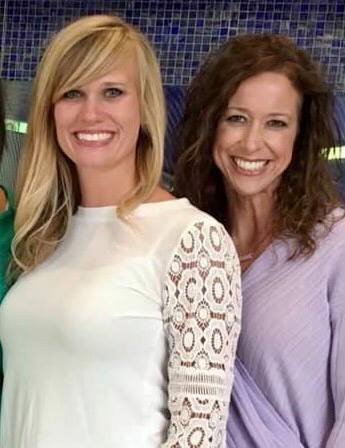Helping students speak out
Published 4:59 pm Friday, July 9, 2021

- Alana Flow and Renee Ousley, Chilton County Board of Education Speech Language Pathologists. Ousley works as a preschool speech pathologist in Clanton, while Flow covers the Jemison area.
|
Getting your Trinity Audio player ready...
|
By Elisabeth Altamirano-Smith/ Community Columnist
The next school year is right around the corner. Many new children will be attending kindergarten for the first time which can be an exciting new adventure but also can be intimidating. Some children have difficulty communicating, speech articulation difficulties or may be non-verbal and it will be the first time in a classroom setting. Nearly 1 in 12 children in the United States (age 3-17) have a disorder related to speech, voice, language or swallowing. Chilton County Board of Education Speech Language Pathologist, Renee Ousley helps pre-school age children (ages 3-5) work on communication skills before the child enters kindergarten.
“Many times when a child is not able to communicate well they have an increased risk for behavioral issues because they feel frustrated that they can’t get their point across,” said Ousley. “Every child is different. The ideal goal for children is verbal communication, but for non-verbal children it can be sign language, gestures or any kind of output so that the child has a voice. My goal is to help every child find their voice or a way to communicate.”
Ousley and her co-worker, Alana Flow, are employed by the State of Alabama school system which focuses on helping children communicate to enhance their educational experience; specifically addressing how the child’s language difficulties will impact their education and how to improve. Ousley and Flow visit various pre-schools and daycares around Chilton County to work with each student.
“I personally received speech therapy when I was a child and I loved my speech therapist so much,” said Ousley. “It left a lasting impression on me. Later on, when I was a junior at Maplesville High School, I worked as a teacher’s aide for the speech therapist. I would get the children out of class, lead them to speech therapy and prepare their materials. It was the first realization that I wanted to study speech pathology as a career. I enjoyed it so much.”
Speech pathology needs are different for each child. Some children practice their speech articulation sounds.
“Common articulation difficulties for children can be mispronouncing the ‘P’, ‘M’, ‘K’ or ‘G’ in words or substituting letters for others, like using a ‘T’ instead of a ‘C’ for the word “Cow,” said Ousley. “We practice how to shape the mouth and tongue and it will become habitual how to pronounce it correctly. Or if a child isn’t very verbal they may see a picture of a fish and use the word ‘water’ because they associate the fish with water and don’t know the word for fish. For those students we introduce vocabulary words. Techniques for correcting stuttering focuses on slowing down and breathing in order to have control. At certain developmental points a child’s brain is actually learning more words than what their mouth can produce, so for stuttering it is about slowing down and taking time to speak.”
New students come to Ousley and Flow several different ways. They may be initially contacted by the Alabama Early Intervention Agency which helps identify children with congenital issues and offers family services. A parent or guardian may directly contact the Board of Education and request for the child to be tested. Other sources such as doctors, teachers, daycare workers or DHR may reach out for the child to be screened for exceptionality.
“Communication is so important in our life. We need to be able to communicate to be successful academically, socially, to get ideas, give our preferences, to have choices,” said Ousley. “I feel blessed to be part of this step in someone’s life. It keeps me on my toes because of the wide range of challenges. I love working with each student and getting to know their families. For many of them it may be the first time they are facing this challenge and it blesses me to help them. I also love the great community I work with. The preschool teachers and other special service providers we work with can be very supportive and it is wonderful to bounce off each other.”
For more information or for a speech pathology screening, contact the Chilton County Board of Education at 205-280-3000.



